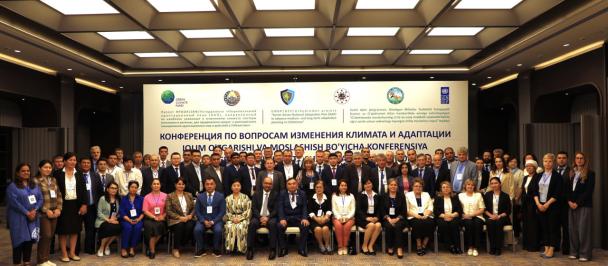Journalists of Uzbekistan for energy-efficient rural housing
November 10, 2022
October 15, 2022 - Trainings for journalists and bloggers were devoted to the subject of best practices for media coverage of climate change, energy efficiency, renewable energy, and the construction of energy-efficient and low-carbon houses. These trainings, which covered media of all regions of the republic, took place in five regions of Uzbekistan, including Qashqadaryo Region, the Republic of Karakalpakstan, Fergana Region, Tashkent Region, and Bukhara Region. The cycle of trainings was carried out within the framework of the project entitled Assistance in the Development of Construction of Energy-Efficient Rural Housing in Uzbekistan. This project is being implemented by the UN Development Program together with the Ministry of Construction of the Republic of Uzbekistan with grant support from the Global Environment Facility (GEF) and is aimed at securing the rural population of Uzbekistan with improved and accessible living conditions that cause no harm to the environment.
The primary purpose of these trainings was to promote professional growth for media professionals focusing on covering energy efficiency and renewable energy in buildings. Trainees came away from the program with the tools to provide more comprehensive coverage of this topic, ultimately helping them continue their work towards creating an energy-efficient society.
The construction of the first energy-efficient standard houses in the regions of Uzbekistan began in 2019, as part of a joint project of the UN Development Program, the Global Environment Facility (GEF), and the Ministry of Construction. To date 800 single-story and 22 multi-story were built in the regions of Uzbekistan, all equipped with energy-efficient and energy-saving equipment.
These houses were built using the latest insulating materials for cooling and heating purposes. They were also equipped with photovoltaic power stations and solar water heaters, which reduce electricity consumption by 30%.
These solutions make it possible to consume less electricity in a country like Uzbekistan. Households in developing countries often consume too much electricity and burn natural gas, releasing excess carbon dioxide emissions into the atmosphere.
The trainings were held to support initiatives to make UNDP energy-efficient housing initiatives in Uzbekistan available to the wider public. Journalists of various professional levels had the opportunity to meet with media trainers, as well as experts in ecology, energy, and social and gender issues. They attended presentations and participated in discussions, practical exercises, and role-playing games.
Trainers provided journalists with information on producing materials for energy-efficient housing. Participants were introduced to nuances of the specific journalistic work and sources required for this topic.
Lecturers provided journalists with trainings about modern methods and international standards of environmental journalism. As part of the training, participants attended meetings with local energy efficiency experts. They participated in discussions about the benefits of energy-efficient housing technologies in rural areas, often covering specific examples from regional practice.
"During the training, we practiced interviewing, storytelling, and fact-checking. These skills are necessary for press coverage of energy-efficient housing initiatives. They’re also new skills for me," said Bobur Karimov, a journalist from Fergana.
Participants practiced conducting analytical conversations, learning to talk about energy-efficient housing in different situations and for different audiences (including government officials, energy experts, eyewitnesses, potential future owners, and users of energy-efficient housing). The trainings ended with excursions to energy-efficient houses already built in Uzbekistan. Local energy experts and enthusiasts of energy-efficient housing guided the visits.

 Locations
Locations


